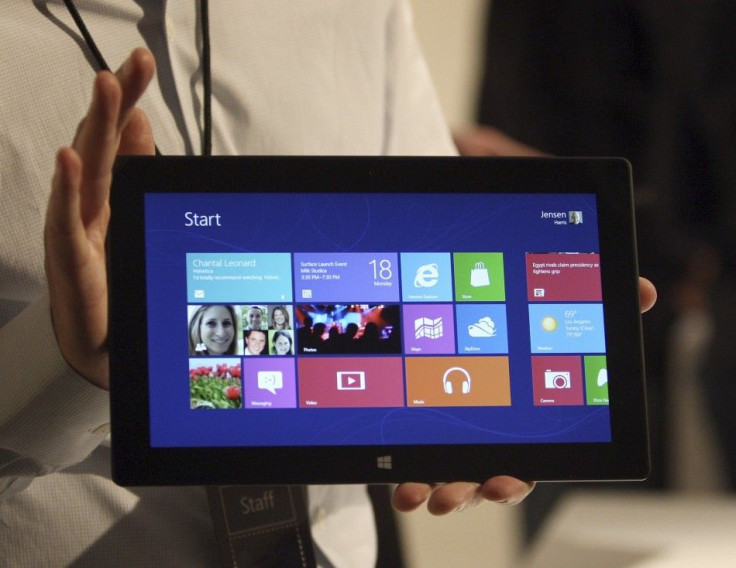Samsung: Windows 8, Microsoft Surface Tablet Is 'Lackluster'

Microsoft and its newest Windows 8 operating system have had a rough go since the software was released in October -- unfortunately, the bad press for Windows 8 and the company's Surface tablet continued Friday when a key executive at Samsung spoke out against Microsoft's latest offerings.
In a meeting with reporters Friday, Jun Dong-soo, president of the memory chip division at Samsung, offered his thoughts on the dying PC industry and Microsoft's role in it.
"The global PC industry is steadily shrinking despite the launch of Windows 8," the Samsung executive said, as reported by The Korea Times. "I think the Windows 8 system is no better than the previous Windows Vista platform."
While Windows Vista from 2007 has gone down as one of the worst-reviewed software offerings ever released by Microsoft, Jun's comments aren't far from the truth. According to the numbers, Windows 8 has been adopted at a far slower pace than Windows Vista, and according to StatCounter, there are more computers in the world still running Windows Vista than computers running Windows 8.
"MS’s rollout of its Windows Surface tablet is seeing lackluster demand," Jun continued. "Meanwhile, previous vigorous pitches by Intel and MS for thinner ultra-books simply failed, and I believe that’s mostly because of the less-competitive Windows platform."
While the Samsung executive's comments were harsh, unfortunately for Microsoft, Jun wasn't the only one with bad things to say about Windows 8 and the Surface tablet. Executives at Asus and Acer -- the fourth- and fifth-largest PC makers in the world, respectively -- and even Fujitsu have previously expressed their concerns about the viability of Windows 8 going forward.
"Demand for Windows 8 is not that good right now," Asus CFO David Chang told the Wall Street Journal in November.
"There was not a huge spark in the market," Emmannuel Fromont, president of Acer's Americas division, told The New York Times in December. "It's a slow start, there's no question."
Microsoft's problem is that neither Windows 8 nor the Surface tablet solve the problem of the diminishing role of PCs. Users are relying more on smartphones and tablets rather than full-range PCs, and while Microsoft would not call the Surface a "PC," the Surface is sold at a PC-like prices (expensive) and has PC-like battery life (poor).
The Surface was Microsoft's first stab at hardware, and sales of the device, as well as the operating system, prove that improvements need to be made if Microsoft hopes to offer a possible contender in the post-PC era. The comments from the Samsung executive may have been strong, but they were valuable and highly accurate: If Microsoft should take anyone's advice, it should be Samsung, which has made a veritable mint by investing early and often in smartphone development.
Even though Microsoft's role as the provider of open software has been recently replaced by Google's Android OS, the Redmond, Wash.-based company can still learn a thing or two from the little green robot: New hardware and software is great, but it means nothing unless it's accessible.
© Copyright IBTimes 2025. All rights reserved.






















